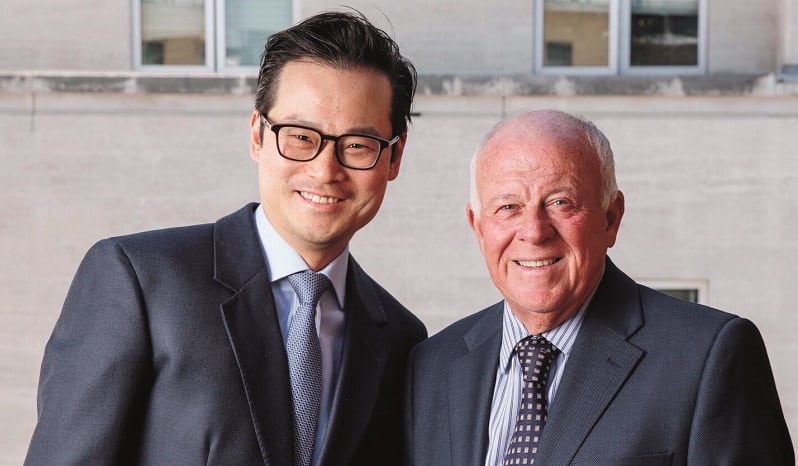Gucci-owner Kering and Alphabet have both made their way into top 10 positions in Blue Whale’s £783m Growth fund.
The Blue Whale Growth fund, managed by Stephen Yiu (pictured left) traded Italian fashion house Moncler for French rival Kering in February this year on valuations grounds.
Moncler, which is known for its luxury ski apparel, had been in the portfolio since Yiu launched the £783.5m fund in September 2017 but had only crept into the top 10 holdings this January.
After its shares spiked this year Yiu sold out due to his strict valuation discipline, picking up Kering instead which was trading at a significant discount to Moncler.
Months later it now finds itself in Yiu’s top 10 holdings, alongside fellow new addition Alphabet, with its own shares taking off 42% from €525 at the end of February to €747 today.
Blue Whale Growth does not provide an individual percentage breakdown of its largest holdings. However the fund holds between 25-35 holdings, with the top 10 making up 54% of its portfolio.
‘2021 is the Year of Gucci’
Aside from its enticing valuation Kering, which owns a suite of luxury fashion houses including Gucci, Saint Laurent, Bottega Veneta and Alexander McQueen, is “particularly attractive” for Blue Whale as it catches up with other giants of the industry like LVMH and Hermes.
“2021 is the Year of Gucci in the world of fashion, marking its 100th year since founding,” Yiu said in the fund’s June update.
“We expect this to be a boon for its holding company, Kering, which we expect will experience an unprecedented wave of brand awareness and sales through the many celebratory events, including a feature film staring Al Pacino and Lady Gaga.”
Google parent enters Blue Whale Growth’s top 10
Google parent company Alphabet also made its way into the top 10 holdings last month, Yiu confirmed in the update.
Yiu said: “Branching out into maps and email, the company now provides services that are so embedded in our lives that we can’t imaging life without it.
“Capitalising on its near-monopoly in online search, the company is reinvesting its profits from digital advertising into the platforms of the future – including driverless cars and augmented reality – which we see fuelling its journey to a multi-trillion dollar company.”
Alphabet released stronger than expected first quarter results in April showing a revenue increase of 34% year on year to $55.3bn, while its operating income doubled year on year from $8bn in Q1 2020 to $16.4bn in Q1 2021. Year-to-date its share price has risen 38% from $1726.13 to $2381.18.
Performance dented by value rotation
But its 52.3% tech weighting has dented performance this year amid the value rotation. The fund is now in the bottom quartile over six months and one-year, having returned 5.3% and 15.5% respectively versus the IA Global average of 8.9% and 24.8%, according to Trustnet.
On a three year basis, the fund has returned 63.1%, outperforming the sector average of 37.9%.
Yiu remains unconcerned about the prospects of inflation and rising rates, which “are bad for companies that are over-levered and don’t have pricing power,” noting the companies in his portfolio “are mostly price-setters and have more cash than debt”.
Over the past year, Yiu has made a number of changes to the fund, adding to holdings in Microsoft, Adobe and Autodesk last March, as well as initiating a position in video game company Nintendo.









